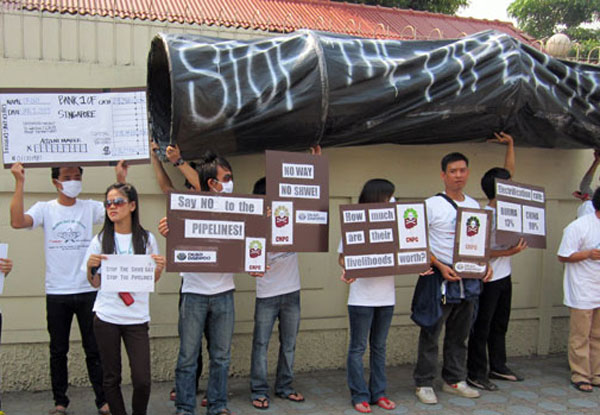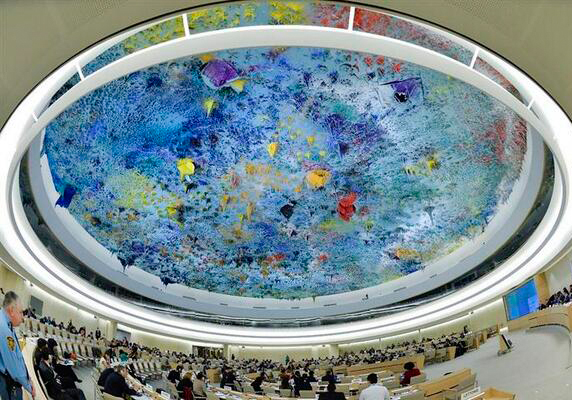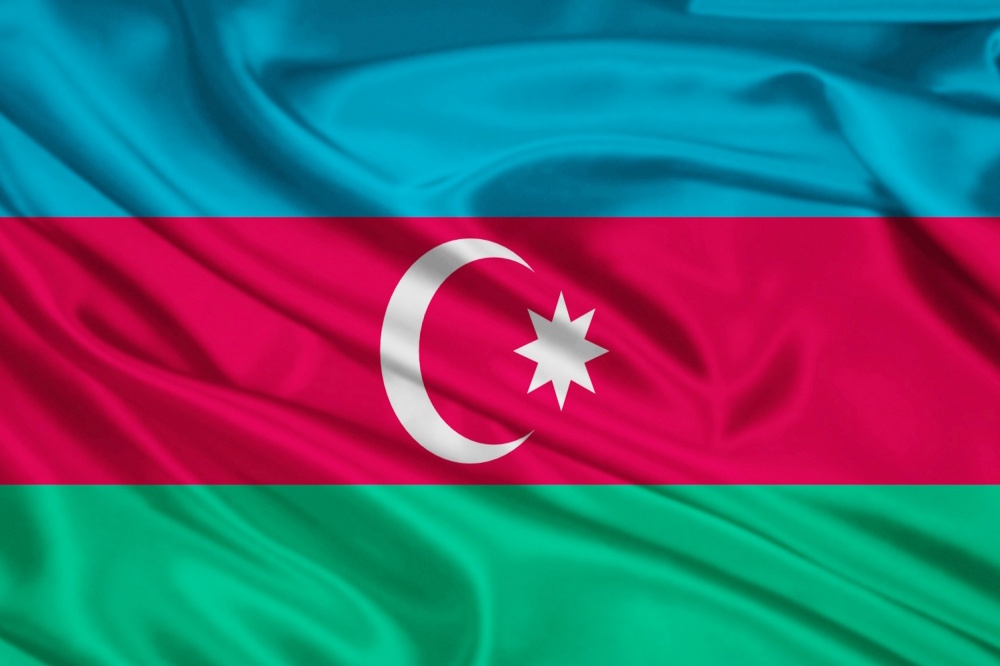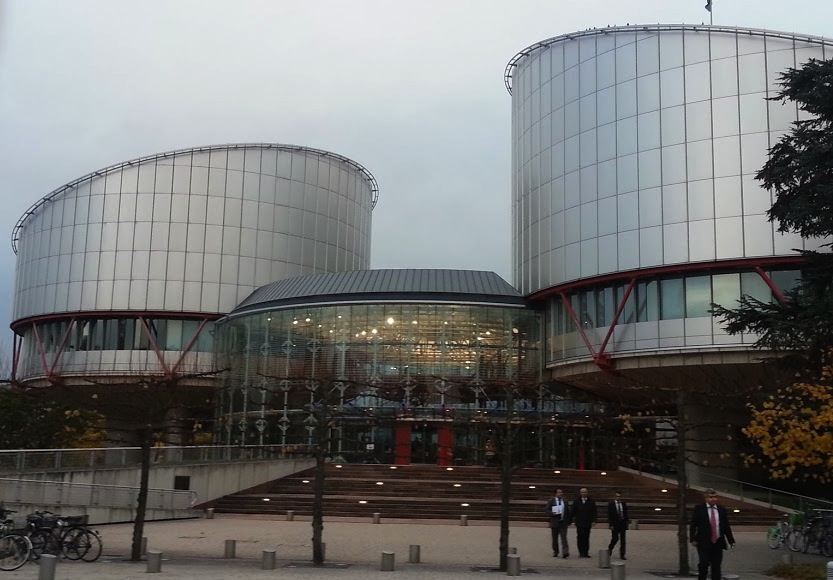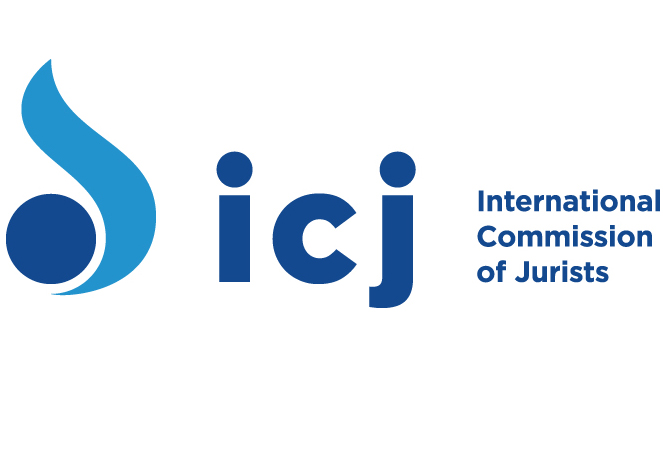
ICJ E-Bulletin on counter-terrorism and human rights – no. 103
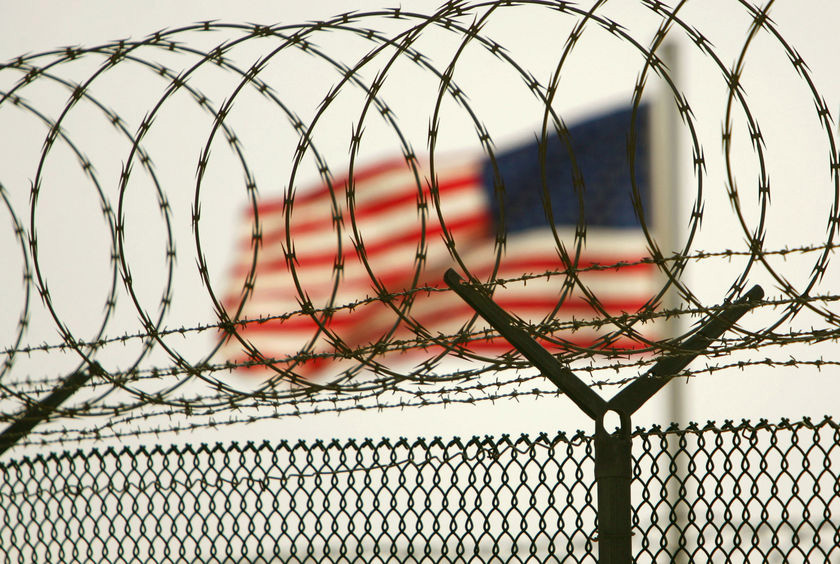 Read the 103rd issue of ICJ’s monthly newsletter on proposed and actual changes in counter-terrorism laws, policies and practices and their impact on human rights at the national, regional and international levels.
Read the 103rd issue of ICJ’s monthly newsletter on proposed and actual changes in counter-terrorism laws, policies and practices and their impact on human rights at the national, regional and international levels.
The E-Bulletin on Counter-Terrorism and Human Rights provides hyperlinks to full texts of reports, statements, laws, court judgments and legal analysis. It aims at fostering an informed debate on the implications of counter-terrorism measures for the promotion and protection of human rights.
AFRICA & MIDDLE EAST
Egypt: Presidential decree expands military jurisdiction
Israel: Anti-terrorism reforms passed by Knesset
AMERICAS
USA: Virginia appeals court rules that tracking location data is not a 4th Amendment search
USA: Mass shooting at gay Orlando nightclub by alleged terrorist
USA: CIA declassifies documents related to its detention and interrogation programme
USA: Government watchdog report on FBI face recognition technology
USA: Administration releases its drone strikes casualties figures
Canada: Pressure on Government for inquest into complicity in torture in Afghanistan
Canada: Court orders Iran’s assets to be handed over to victims of terrorism
ASIA – PACIFIC
New Zealand: Man jailed for spreading images of IS violence
Pakistan: ICJ briefing paper on trials of civilians in military courts
Pakistan: ICJ calls on Government no to extent Protection of Pakistan Act
EUROPE & COMMONWEALTH OF INDEPENDENT STATES
UK: No charges against MI6 for rendition to Libya of dissidents
Denmark: Man stripped of citizenship following conviction for inciting terrorism
Germany: Cabinet signs off on reforms to intelligence agency
Hungary: Constitutional amendment grants Government extended powers in case of terrorist attacks or threats
Poland: New anti-terrorism provisions give authorities sweeping powers
Russian Federation: New anti-terrorism provisions approved
Spain: European Court of Human Rights judgment in Beortegui Martinez v Spain
Sweden: First trial begins under new counter-terrorism legislation
Turkey: Journalists arrested on charges of “terrorist propaganda”
Turkey: Parliament expands military authority
UNITED NATIONS & REGIONAL ORGANIZATIONS
UN: Committee on the Rights of the Child reviews Pakistan
Council of Europe: European Court of Human Rights hearing in rendition cases
EU: Sharpston Opinion in case concerning refugee application after terrorism conviction
EU: European Parliament calls for investigation of CIA torture sites
EU: Dialogue on counter-terrorism with Turkey
E-BULLETIN no. 103
AFRICA & MIDDLE EAST
Egypt: Presidential decree expands military jurisdiction
On 8 June, President al-Sisi issued a decree that empowers the armed forces to be the executive entity responsible for the supervision of State-owned land located within two kilometres on either side of the national network of roads. The decree entails a further expansion of military jurisdiction over civilians, as it entitles the armed forces to remove all illegal constructions built on State land and bring violators before military courts.
Media ReportIsrael: Anti-terrorism reforms passed by Knesset
On 15 June, the Knesset passed a series of sweeping anti-terrorism reforms, expanding the State’s counter-terrorism powers and its definitions of terrorist organizations and terrorist acts. The omnibus law creates new vaguely defined terrorist offences, including identifying with a terrorist organization, incitement to terrorism and failure to prevent a terrorist act. For the first time, the use of various means to combat terrorism are now enshrined in law rather than through emergency regulations. Among other things, these include administrative detention and orders barring individuals from leaving the country; an authorization for law enforcement officials to hold suspects for up to 48 hours without charge before they are brought before a judge; and the possibility for the Shin Bet security service, on approval of the Prime Minister, to conduct computerized surveillance of those suspected of having a connection to terrorist activity. Adalah, a Palestinian legal organization in Israel, says that the law would effectively import into Israel many of the draconian military orders currently used against Palestinians under occupation.
Media Report
Media Report
Media Report
AMERICAS
USA: Virginia appeals court rules that tracking location data is not a 4th Amendment search
On 30 May, the 4th Circuit Court of Appeals sitting en banc in USA v Graham upheld the third-party doctrine in a case concerning a request by law enforcement for mobile phone records to track location data in an investigation. According to the Court, this does not constitute a search under the Fourth Amendment to the Constitution, as the consumer knowingly and willingly surrenders the information to its provider and therefore has “no reasonable expectation of privacy” in that information. The ruling realigns the 4th Circuit with the 5th, 6th and 11th Circuits, which have reached the same conclusion. In the same case, a three-judge panel of the 4th Circuit had ruled in August 2015 that obtaining phone-site records in bulk did constitute a search triggering a warrant requirement, in an opinion relying heavily on the mosaic theory, which argues that even if one instance of evidence gathering does not count as a search, asking for a large number of data points can eventually amount to one. In the case, the Government obtained 221 days’ worth of phone records belonging to a robbery suspect.
USA: Mass shooting at gay Orlando nightclub by alleged terrorist
On 12 June, a mass shooting was carried out by Omar Mateen, killing 49 people and wounding 53 others inside a gay nightclub in Orlando, Florida. Mateen, who was shot and killed by Orlando police after a three-hour standoff, had made a 9-1-1 call shortly after the attack began, in which he swore allegiance to the leader of the Islamic State (IS). He had told a hostage negotiator that he undertook the attack because of American bombing campaigns in Iraq and Syria. The massacre was described by some officials, including Orange County Sheriff, as a domestic act of terror. Subsequent investigations by the Federal Bureau of Investigation and Central Intelligence Agency have so far found no evidence linking Mateen to IS and have cautioned that the attack may have been IS-inspired without being IS-directed.
Media Report
Media Report
Media Report
USA: CIA declassifies documents related to its detention and interrogation programme
On 14 June, the Central Intelligence Agency (CIA) declassified fifty documents related to its rendition, detention and interrogation programme, pursuant to a Freedom of Information Act request filed by the American Civil Liberties Union (ACLU). The documents describe the CIA’s treatment of terrorism suspects after the 9/11 attacks and include detailed descriptions of the inner workings of the CIA black site prisons. The ACLU stated they “underscore the cruelty of the methods used in… secret, overseas black sites”.
NGO Statement
Blog Post
Media Report
Media Report
Media Report
Media Report
USA: Government watchdog report on FBI face recognition technology
On 15 June, the Government Accountability Office (GAO) released its report on the Federal Bureau of Investigation’s (FBI) face recognition technology. The report for the first time revealed the extent of the programme, showing the FBI has access to more than 411 million photos from sources including driver’s licenses and passport and visa applications, which it cross-references with photos of criminal suspects using facial recognition software, the accuracy of which is largely untested. The report asserts that the FBI has done little to ensure that its search results do not include photos of innocent people, and it has not taken any steps to determine whether the face recognition systems of its external partners are sufficiently accurate. The GAO also found that the FBI did not disclose the database’s impact on public privacy until it audited the Bureau in May.
GAO Report
NGO Statement
Media Report
USA: Administration releases its drone strikes casualties figures
On 1 July, the Director of National Intelligence (DNI) released an internal assessment of the number of civilians killed by drone strikes in nations where the USA are not officially at war. According to the report, between 64 and 116 civilians were killed in Pakistan, Yemen, Somalia and Libya during the two terms of the Obama Administration. That figure is lower than any estimates of independent groups. Only aggregate data was released, making meaningful scrutiny difficult. The release was accompanied by an Executive Order, instructing the Office of the DNI to release a similar report on a yearly basis. It also says that the families of civilians killed by the USA should receive condolence payments.
DNI Report
Blog Post
Blog Post
Blog Post
Media Report
Canada: Pressure on Government for inquest into complicity in torture in Afghanistan
On 7 June, a group of human rights advocates, legal experts, politicians and diplomats urged the Government of Canada to launch a public inquiry into the alleged torture of hundreds of Afghan detainees who were transferred from the Canadian military to Afghan authorities notwithstanding clear and credible risks of torture, adding to the pressure put on the Trudeau Administration by an e-petition that demanded a wide-ranging probe into unresolved questions related to the issue. On 17 June, the Government responded that it “does not believe an independent judicial commission is necessary”.
Open Letter
Government Response to E-Petition
Media Report
Media Report
Canada: Court orders Iran’s assets to be handed over to victims of terrorism
On 9 June, the Ontario Superior Court ordered Iran’s non-diplomatic assets in Canada to be handed over to victims of Hamas and Hezbollah, dismissing the Iranian Government’s arguments. The 13-million-dollar case was the first challenge of the Justice for Victims of Terror Act, a 2012 law that allows victims to obtain damages from State sponsors of terror groups.
ASIA – PACIFIC
New Zealand: Man jailed for spreading images of IS violence
On 23 June, a New Zealand man was sentenced to three years and nine months’ imprisonment by an Auckland court after he admitted to making, distributing and possessing videos depicting ISIS violence. The sentence was the first on an objectionable material charge related to violence, which to date has only been used in relation to indecent child images.
Media ReportPakistan: ICJ briefing paper on trials of civilians in military courts
On 23 June, the ICJ released a new Briefing Paper on the hearing by military tribunals of civilians charged with terrorism-related offences. In the report, the ICJ examines the performance of these opaque tribunals since the 21st Amendment was passed in January 2015, which operate in violation of national and international fair trial standards and fail to deliver justice as well as the promised “quick results”.
ICJ Briefing PaperPakistan: ICJ calls on Government no to extent Protection of Pakistan Act
On 30 June, the ICJ called on the Government of Pakistan not to extend the Protection of Pakistan Act, which was enacted in July 2014 for a period of two years and which gives military and law enforcement authorities sweeping powers to detain individuals in contravention of Pakistan’s international human rights law obligations. Amongst other things, the law has created special courts that do not meet international standards for fair trials.
ICJ Statement
EUROPE & COMMONWEALTH OF INDEPENDENT STATES
UK: No charges against MI6 for rendition to Libya of dissidents
On 9 June, the Crown Prosecution Service (CPS) stated there is insufficient evidence to bring criminal charges against anyone in the Secret Intelligence Service for its involvement in the rendition and alleged ill-treatment of Abdel Hakim Belhadj and Sami Al Saadi and their respective families in South East Asia to Libya in 2004. In its conclusions, the CPS’s Special Crime and Counter Terrorism Division notes that “it has been understandably difficult to piece together events from over 10 years ago with enough precision or for witnesses to recall matters in sufficient detail to prove the elements of the alleged offences”.
CPS Statement
Blog Post
Media Report
Denmark: Man stripped of citizenship following conviction for inciting terrorism
On 8 June, the Danish Supreme Court stripped the citizenship from Said Mansour, a Danish-Moroccan bookseller jailed for inciting terrorism, upholding the lower court’s judgment. He is the first person to be stripped of Danish citizenship due to a crime. In 2013, he was arrested and put on trial for Facebook posts praising Osama bin Laden and calling on his followers to join al-Nusra Front. He was also accused of helping to publish books by Abu Qatada, a Jordanian cleric who was deported from Britain. Mansour moved to Denmark in 1983 and gained citizenship in 1988.
Germany: Cabinet signs off on reforms to intelligence agency
On 28 June, Merkel’s cabinet signed off on reforms to the country’s foreign intelligence agency (Bundesnachrichtendienst – BND), after a scandal over improper collusion with the US National Security Agency (NSA) that had in late April already led to the replacement of the head of the BND. The reforms, which now require parliamentary approval, include an overhaul of the list of duties the BND carries out for the NSA and increased oversight by an external watchdog panel composed of two judges and one representative of the prosecution services.
Media Report (German)
Media Report
Hungary: Constitutional amendment grants Government extended powers in case of terrorist attacks or threats
On 7 June, the Hungarian Parliament approved a constitutional amendment that grants the Government extended powers in case of terrorist acts or threats, including deploying the armed forces. The law adds a new legal concept, the “terrorism state of emergency”, to the Constitution and grants the Government the ability to introduce extraordinary measures for up to 15 days before requiring confirmation from a two-thirds parliamentary majority. The amendment took effect on 1 July.
Media Report
Media Report
Media Report
Poland: New anti-terrorism provisions give authorities sweeping powers
On 22 June, President Duda signed into law new anti-terrorism provisions that give the authorities sweeping new powers. Among other things, in case of terror alert level three or four (the highest), public meetings and other mass events may be banned by the Interior Minister, and foreigners can be placed under unlimited surveillance or be expelled if they are deemed a threat. Persons who are suspected of being a threat to the State may be detained for up to 14 days without charge, and the Government may introduce temporary border closures. Earlier in the month, on 15 June, the Council of Europe’s Commissioner for Human Rights published a report critical of “far-reaching changes to Poland’s legal and institutional framework”, noting among other things that “the new law on surveillance activities… raises serious concerns of incompatibility with international human rights law”. That same law was the subject of an Opinion by the Council of Europe’s Venice Commission published on 10 June, in which the Commission criticized Poland’s surveillance powers as too broad.
Commissioner for Human Rights Report
Venice Commission Press Release
Blog Post
Blog Post
NGO Statement
Media Report
Media Report
Russian Federation: New anti-terrorism provisions approved
On 24 June, the lower house of the Russian Federation’s Parliament approved the “Yarovaya law”, a package of amendments that would, among other things, introduce prison sentences for failure to report a grave crime. It would also oblige telephone and Internet providers to store all communications for six months and all metadata for three years, and to help intelligence agencies decode encrypted messages. Furthermore, the law would ban proselytizing, preaching and praying outside officially recognized religious institutions. The maximum punishment for extremism, a charge increasingly used against critical social media users, would increase from four to eight years. Earlier in the legislative process, lawmakers removed a proposed clause that would have stripped Russian citizenship of individuals working for foreign intelligence or those guilty of terrorist offences. On 29 June, the upper house approved the legislative package. If signed into law by President Putin, the laws will enter into force in 2018.
Blog Post
Media Report
Media Report
Media Report
Spain: European Court of Human Rights judgment in Beortegui Martinez v Spain
On 31 May, the European Court of Human Rights found a violation of the procedural aspect of Article 3 of the European Convention on Human Rights (prohibition of torture and inhuman or degrading treatment or punishment), in a case concerning the failure to investigate an allegation by Beortegui Martinez that he was ill-treated by Guardia Civil officers while detained incommunicado in police custody on suspicion of belonging to a terrorist organization. The Court also reiterated the importance of adopting the measures recommended by the European Committee for the Prevention of Torture (CPT) with a view to improving the quality of forensic medical examinations of individuals held incommunicado in police custody and urged the Spanish authorities to draw up a clear code of conduct for officers responsible for supervising such individuals as to the procedures for questioning them and for ensuring their physical integrity.
JudgmentSweden: First trial begins under new counter-terrorism legislation
On 2 June, the Attunda District Court started the trial of a 25-year old man suspected of planning to travel to Syria to join al-Nusra Front. The man had been arrested at Stockholm’s airport, returning from a day-trip to Turkey. He is the first to stand trial under the country’s new counter-terrorism legislation, introduced on 1 April, which foresees two-year prison sentences for those convicted of travelling to another country to seek training or to commit a terrorist act.
Media ReportTurkey: Journalists arrested on charges of “terrorist propaganda”
On 20 June, Turkish authorities arrested journalist and Reporters Without Borders representative Erol Önderoglu, forensic doctor and head of Human Rights Foundation Turkey Sebnem Korur Fincani and journalist and writer Ahmet Nesin on charges of “terrorist propaganda”. The charges arise from their participation in a solidarity campaign, in which journalists and activists have been taking turns acting as co-editors of the Kurdish newspaper Özgür Gündem to protest the persistent harassment of the newspaper by judicial authorities. All three had been released from pre-trial detention by 30 June. The indictments against Önderoglu and Financi were accepted by Istanbul’s 13th Heavy Penal Court, with the first hearing in the trial scheduled for 8 November. No decision has been issued yet regarding Nesin. On 23 June, a court acquitted British scholar Chris Stephenson, who had been accused of “making propaganda for a terrorist organization” and who was deported from Turkey in March after being found with invitations for Kurdish New Year celebrations. Stephenson was one of the thousand scholars who signed a declaration denouncing military operations against Kurdish rebels in southeast Turkey.
NGO Statement
Media report
Media report
Media report
Media report
Media report
Turkey: Parliament expands military authority
On 23 June, the Turkish Parliament passed a law that significantly expands military authority by amending Law 5442 of Provincial Governance, which stipulates that if provincial governors cannot control disturbances in cities by using local police, they can ask for military assistance. Among other things, the new provisions grant immunity to armed forces conducting counter-terrorism measures, requiring authorization from either the military or Government before prosecution can take place.
UNITED NATIONS & REGIONAL ORGANIZATIONS
UN: Committee on the Rights of the Child reviews Pakistan
On 3 June, the UN Committee on the Rights of the Child published its concluding observations following the consideration of the fifth periodic report of Pakistan on its implementation of the Convention on the Rights of the Child. Among other things, the Committee’s experts expressed concern about the large number of children killed by counter-terrorism activities and acts of terrorism. The experts deplored the worsening situation of juvenile justice and expressed serious concern about the sentencing to death and lengthy prison sentences of children for terrorism related crimes by special courts.
Concluding Observations
OHCHR Press Release
Council of Europe: European Court of Human Rights hearing in rendition cases
On 29 June, the European Court of Human Rights held separate public hearings in the cases of Abd al-Rahim al-Nashiri and Abu Zubaydah, who are currently held at Guantánamo Bay detention camp. They accuse the Romanian and Lithuanian Governments of allowing their incommunicado detention and torture at secret facilities of the US Central Intelligence Agency and facilitating their transfer in and out of Romania and Lithuania.
Court Press Release
Court Press Release
NGO Statement
EU: Sharpston Opinion in case concerning refugee application after terrorism conviction
On 31 May, Advocate General Sharpston of the Court of Justice of the European Union delivered her opinion in Case C-573/14, a request for a preliminary ruling from the Belgian Council of State in a case concerning Mostafa Lounani, who was convicted of participation in a terrorist group in 2006 by a Brussels criminal court and applied for refugee status in 2010. His application was refused, and the subsequent appeal proceedings gave rise to the referral of several questions to the Court of Justice. Among other things, Sharpston concludes that a previous conviction for being part of a terrorist organization may not automatically lead to the exclusion from international protection, although a final conviction for a terrorist offence in a EU Member State court should be given significant weight in the individual assessment, which should include an examination of whether the person shares personal responsibility and the implications of the group’s activities for international peace and security.
AG OpinionEU: European Parliament calls for investigation of CIA torture sites
On 8 June, the European Parliament passed a non-binding resolution condemning the “apathy shown by member states and EU institutions” over the “multiple fundamental rights violations and torture” that took place as part of the US Central Intelligence Agency (CIA) rendition programme in Europe between 2001 and 2006. The Members of the European Parliament (MEPs) call on the member states to “investigate, ensuring full transparency, the allegations that there were secret prisons on their territory in which people were held under the CIA programme”, and expressed concern that “undue classification of documents” had lead to “de facto impunity for perpetrators of human rights violations”. The MEPs furthermore expressed regret that the US Government has failed to cooperate with EU member states in their investigations of the rendition programme.
Resolution
European Parliament Press Release
EU: Dialogue on counter-terrorism with Turkey
On 8 June, Turkey and the European Union held a counter-terrorism dialogue as part of their regular exchanges on the topic. They agreed to explore ways of enhancing collaboration on information sharing, law enforcement and judicial cooperation, including cooperation in the field of terrorism related deportations and the financing of terrorism. It was also agreed to step up cooperation to prevent radicalisation and recruitment and to address the root causes of these problems.
EEAS Press ReleaseFind this E-Bulletin and more information about the ICJ, the rule of law and human rights on our website: www.icj.org. Please send feedback about the E-Bulletin to icjcounter-terrorism@icj.org.

